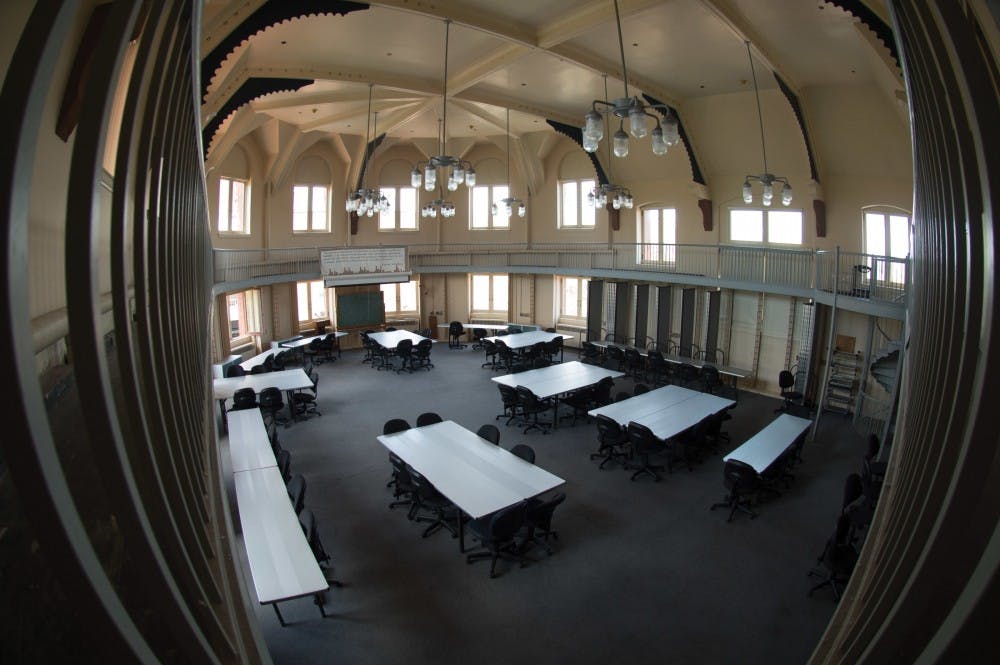Energy policy progress and debate will soon light up the center of Penn’s campus.
Made possible by a $10 million gift from 1994 College and Wharton graduate Scott Kleinman and his wife, Wendy, the Kleinman Center for Energy Policy will serve as a vehicle for developing new energy policy by revolutionizing the relationship between research and practice. It is scheduled to launch in Fall of 2014.
and former chief policy adviser to Philadelphia Mayor Michael Nutter — will serve as the Center’s director.
“[The Center] will make visible and galvanize even more faculty and student attention and opportunities related to energy policy in the United States and around the world,” Hughes said. “It will become a home for special inter-school classes, for visiting lecturers, for conferences designed to bring experts from around the country to Penn and to Philly to work through some of the most challenging policies that we face.”
The Center — which will be housed on the third and fourth floors of the Fisher Fine Arts Library — will support the creation of new energy policies by fostering collaboration among stakeholders and innovators.
Hughes said that he hopes to implement a Kleinman Annual Lecture on Energy Policy in Spring of 2015, which would bring a distinguished individual to campus for about two weeks to correspond with faculty and students and speak about relevant energy issues.
“The idea is that it would become the most influential annual statement about what we need to do next in energy policy in the country,” Hughes said.
Serving as a forum for policy development, the Center will bring together scholars, stakeholders and investors to work through “the thorny issues around so many energy problems” and create real policy, Hughes said.
“Energy can be complex and affect many different interests... I hope [the Center] can become a forum where those interests can come together in a place that’s safe and smart and well-resourced to see through the negotiations and compromises that can help advance energy policy,” Hughes said, adding that the Center can provide an opportunity to “make progress rather than just fight and get nowhere.”
The Center will also build upon current energy research in a variety of fields to focus on policy applications and provide opportunities for internships.
“Setting the Center at Penn will provide a forum for students – our future political, business and technology leaders – to get educated on relevant energy topics and become involved in shaping the direction of research and debate,” Kleinman said in a statement.
The center will occupy spaces where renowned Penn Design professors Louis I. Kahn and Ian McHarg brought “the world to Penn in their courses and in their studios” in the ’50s, ’60s and ’70s , Hughes said.
The $10 million gift must be spent over a five year period, after which Hughes said the University may identify other ways of resourcing the Center, to make it more permanent or even move it to an endowed status.
“The Center presents a profound opportunity for Penn to address one of the most important and complex policy challenges of our time,” Penn President Amy Gutmann said in a press release. “Penn has a critical mass of energy research centers and curricular offerings. Some are already engaged in aspects of energy policy.”
Department of Health and Human Services, by the Ford Foundation and the U.S. Department of Housing and Urban Development, and by the Rockefeller and William Penn foundations. He spent most of his time in city government leading the development and implementation of the city’s sustainability plan, called Greenworks.
“My work in energy has always been related to energy policy and how we can make more productive and more equitable the creation and use of energy in society,” Hughes said.
Hughes said he is assembling both an internal and external advisory board to steer the Center’s endeavors.
“And we’re looking forward to a more formal launch of the Center in its new home some time this fall,” Hughes said.



